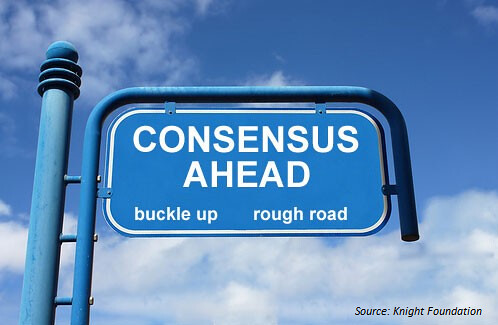I have posted four more statements of support from residents in District 5. I feel that if you pay attention to local Provo issues you will likely recognize many of the names below the statements. Scroll through the page. You'll probably agree that the authors represent a fairly broad cross section of community-minded folk in Provo. What brings a diverse group of people with different views together for a common cause? It helps to be able to respectfully disagree, but I believe it also takes an ability to build consensus.
I particularly appreciate Jamie Littlefield's assessment of my "ability to work well with just about anyone to get things done". She says, "Dave has been willing to listen and work respectfully with both those that agree and those that disagree with him."
It takes consensus to get things done on the Council. At a minimum, it takes a majority agreement among members of the Council to get anything to pass, but a series of 4-3 votes will fray relationships over time. It is far better to work for a broader consensus on the Council before going forward with a vote.
Likewise, in representing the public, it is important to listen to all stake-holders and to look for solutions that address major concerns, even if they aren't held by the majority.
For some, "consensus" is a negative word. It can mean compromise, and watered-down solutions that are not bold enough affect any real change. This does not have to be the case. We often look at issues and take "sides" and advocate for solution A or solution B, though solution B is usually just solution not-A. Coming to a consensus can mean getting compromises on both sides for a hybrid A/B solution or to water solution A down enough to make it palatable to the non-A side.
A good leader can find consensus in other ways. It can also be found by carefully listening to advocates of solution A and advocates of solution B and looking for a solution C which addresses the wishes and concerns of both groups. Building consensus can also mean exploring the experiences and outcomes of other cities who have wrestled with similar questions, and learning together which arguments are the most compelling and which points are the most relevant. Constructive dialog can help all interested parties identify the most important aspects and prioritize the desired outcomes. This may bring the groups closer together.
The Reverend Martin Luther King, Jr. said it much more concisely, "A genuine leader is not a searcher for consensus but a molder of consensus."
The Reverend Martin Luther King, Jr. said it much more concisely, "A genuine leader is not a searcher for consensus but a molder of consensus."
If I'm elected to the Council, I will work hard to facilitate the molding of consensuses through the engagement of stake holders, the fostering of constructive dialog, and the exploration of possible solutions.

No comments:
Post a Comment